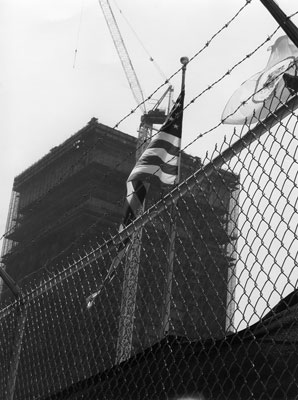All Nonfiction
- Bullying
- Books
- Academic
- Author Interviews
- Celebrity interviews
- College Articles
- College Essays
- Educator of the Year
- Heroes
- Interviews
- Memoir
- Personal Experience
- Sports
- Travel & Culture
All Opinions
- Bullying
- Current Events / Politics
- Discrimination
- Drugs / Alcohol / Smoking
- Entertainment / Celebrities
- Environment
- Love / Relationships
- Movies / Music / TV
- Pop Culture / Trends
- School / College
- Social Issues / Civics
- Spirituality / Religion
- Sports / Hobbies
All Hot Topics
- Bullying
- Community Service
- Environment
- Health
- Letters to the Editor
- Pride & Prejudice
- What Matters
- Back
Summer Guide
- Program Links
- Program Reviews
- Back
College Guide
- College Links
- College Reviews
- College Essays
- College Articles
- Back
The N Word: The Word Given The Most Power
Over the recent years the “N-word” has changed from reminding those of slavery, lynching, segregation, and racism to referring to someone as their buddy or acquaintance; the fear of using the word has made others uncomfortable and awkward, proposing queries such as, “Is it ever okay to use the ‘n-word’?” or, “Is the usage of the word limited to African Americans or is it open to other races such as Caucasians?”
The “N-word,” to some, is the ugliest racial slur created, and its purpose was to vilify African Americans. But to others, it is a reminder of the tumult their ancestors faced and how far they have come. To University of Oregon professor David Bradley, he wholeheartedly accepts usage of this word in daily life. "Look, in every group, there are words that you use, there are inflections, there is knowledge about what a word means to you, or to me, or how I mean it when I say it that is not an insult. I think one of the things that offends white people about it is that they can't say it. They say, 'Well, is it because of my inflection, or is it because...'. It's, 'No, because you're not us.' Jeff Foxworthy says, you know, 'You can't make jokes about a redneck unless you are one.' You can't say the ‘n-word’ unless you are one, and unless you are willing to accept everything that goes with it, which is a lot of good stuff, you know? And that's what they want, they want that good stuff," Bradley said during an interview with 60 Minutes reporter Byron Pitts.
However, high School sophomore Naomi has a completely dissimilar opinion, “[They] do not know the actual meaning of the word and [are] being ignorant. You never heard any Civil Rights leader use that word to their advantage. In fact, Civil Rights leaders fought to abolish the meaning and the word. Today people use the word because they ignore its actual meaning. No ethnicity should be using the word in a casual or slandering sense.”
In 1837, the “n-word” was already considered a huge slur when Hosea Easton wrote The Condition of Colored People of the United States: and the Prejudice Exercised Towards Them. He writes that the term would be perfectly harmless in theory, but instead, it is used with the intent to deliberately make African Americans feel inferior. The word has the same definition today, and that suggests that the word itself has not evolved at all from 1837 until now. Rather, people have evolved around the word and have become aware of the word’s vindictiveness.
Nevertheless, many agree that there are two modern definitions of the word. The “n-word,” with an “a” at the end became more widely spread due to the emergence of hip-hop and rap music in the 1970s and 1980s. Since the movement, this form of the “n-word” is being used in a positive way; however Clouden thinks otherwise. “Many [rappers] choose to follow trends (trends being the “n-word”) to keep the brand that Black Americans were given. They believe they are representing this word in a good way, in actuality the word will never lose its meaning.”
It is an unspoken rule that black people can say the “n-word” because it expresses a common history. Since the use of the “n-word” by rappers, it has become accepted and justified in some circles, especially among teens and those in the entertainment industry. High School sophomore Elizabeth agreed saying, “[Rappers] use it because they feel a sense of power defining themselves as the ‘n-word’; they feel like that’s what they are and what they will always be.”
Some have argued that turning the “n-word” into a compliment is a way of taking control and stripping racists of their power. “I believe it will always have a historical meaning,” replied Karen Ruiz. “I don’t agree with those who try saying it casually; they must not have the full background on the word. It’s more powerful for those who had to go through slavery and [were] discriminated against. Folks who’ve gone through segregation relive the horrid memories of not having the same rights that an ‘American’ had, saying the word is traumatizing and will always be remembered by those who lived in a time of racial segregation.” In contrast, 16 year old African American student, Antoinne Watson thinks, “The ‘shock factor’ is effective in my opinion. The word has been desensitized through excessive use. A cliché weights less than a taboo, for example, ‘I love you,’ or, ‘Yo I got raped in call of duty.’ The ‘n-word’ is a term of endearment and camaraderie.”
Adversaries of the word’s casual use conclude that this type of controversy can be prevented with the right kind of education. When the kids of today are taught the world’s history, they will be less ignorant in their own lives.

Similar Articles
JOIN THE DISCUSSION
This article has 0 comments.

Feel free to respond!